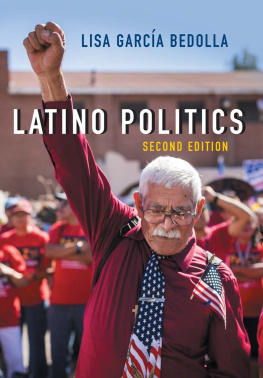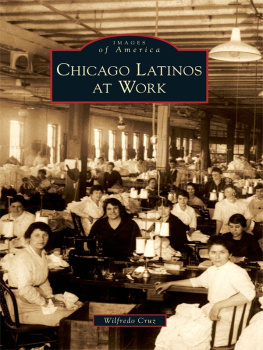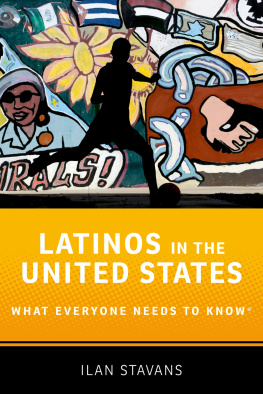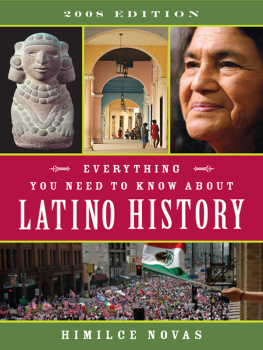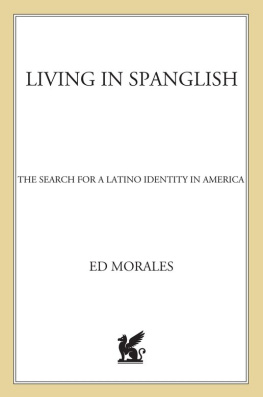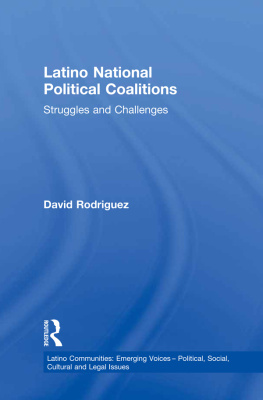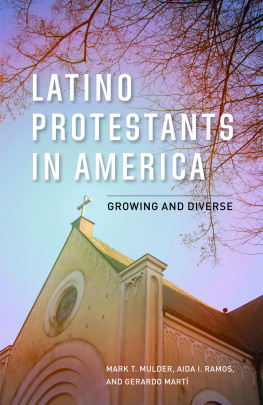CONTENTS
Plates
Figures
Tables
Guide
Print Page Numbers

Copyright Lisa Garca Bedolla 2014
The right of Lisa Garca Bedolla to be identified as Author of this Work has been asserted in accordance with the UK Copyright, Designs and Patents Act 1988.
First edition published in 2009 by Polity Press
This edition published in 2014 by Polity Press
Polity Press
65 Bridge Street
Cambridge CB2 1UR, UK
Polity Press
350 Main Street
Malden, MA 02148, USA
All rights reserved. Except for the quotation of short passages for the purpose of criticism and review, no part of this publication may be reproduced, stored in a retrieval system, or transmitted, in any form or by any means, electronic, mechanical, photocopying, recording or otherwise, without the prior permission of the publisher.
ISBN-13: 978-0-7456-8642-4
A catalogue record for this book is available from the British Library.
Library of Congress Cataloging-in-Publication Data
Garca Bedolla, Lisa, 1969
Latino politics/Lisa Garca Bedolla. Second edition.
pages cm
Includes bibliographical references.
ISBN 978-0-7456-6499-6 (hardcover: alkaline paper) ISBN 0-7456-6499-7 (hardcover: alkaline paper) ISBN 978-0-7456-6500-9 (paperback: alkaline paper) ISBN 0-7456-6500-4 (paperback: alkaline paper)
1. Hispanic AmericansPolitics and government. 2. Hispanic AmericansEconomic conditions. 3. Hispanic AmericansSocial conditions. 4. ImmigrantsUnited States. 5. Political participationUnited States. 6. United StatesRace relationsPolitical aspects. 7. United StatesEthnic relationsPolitical aspects. 8. United StatesPolitics and government. 9. United StatesForeign relations. I. Title.
E184.S75G369 2014
305.868073dc23
2014014640
The publisher has used its best endeavours to ensure that the URLs for external websites referred to in this book are correct and active at the time of going to press. However, the publisher has no responsibility for the websites and can make no guarantee that a site will remain live or that the content is or will remain appropriate.
Every effort has been made to trace all copyright holders, but if any have been inadvertently overlooked the publisher will be pleased to include any necessary credits in any subsequent reprint or edition.
For further information on Polity, visit our website:
www.politybooks.com
Dedication
To Pepe:
Thank you for sharing your life with me
Preface to the Second Edition
I completed the second edition in late summer 2013. This was an ambivalent time for Latinos in US politics. On the one hand, the November 2012 election led to unprecedented interest in and discussion about the Latino vote and its current and future impact on US elections. On the other, comprehensive immigration reform (CIR) had passed the Senate in early summer but was stalled in the House, with Republicans like Iowa representative Steve King saying, about border security options, we could also electrify this wire [on the border] with the kind of current that would not kill somebody, but it would simply be a discouragement for them to be fooling around with it. We do that with livestock all the time. Clearly, sectors of the Republican Party, reflecting non-trivial sectors of US society, barely see Latino immigrants as worthy of basic human dignity and respect. The CIR bill itself, while providing a pathway for citizenship for the estimated 11 million unauthorized immigrants in the United States (many of whom are Latino), also for the first time tied those immigrants ability to regularize their status to the implementation of a set of border security policies by the Department of Homeland Security. No border security, no pathway. And the pathway provided can only be described as arduous, with a minimum 15-year wait to gain citizenship and a remarkable number of hoops to jump through before reaching that point. Most analysts believe only about two-thirds of undocumented immigrants would receive relief under this bill. Compared to the Immigration Reform and Control Act (IRCA) in 1986, this bill is far less generous, more punitive, and much more focused on border security.
So how do we explain the fact that Latino political power has only increased since 1986, yet the immigration policy climate has worsened significantly? Part of the explanation lies with that increase in power and demographic growth. Many Americans, alarmed by significant demographic change within their local communities, sometimes express their unease through anti-immigrant attitudes. Latinos were much less threatening when they werent living next door, attending their childrens schools, or representing them on the city council. This by no means is meant to imply that a majority of Americans feel this way. Rather, it speaks to the complex conscious and unconscious responses individuals have to rapid demographic, technological, and social change. It is easier to blame our anxiety on those who look different, or speak differently, in our local community than on the complex economic restructuring that has so deeply affected all Americans opportunity structures over the past few decades. During periods of adjustment, things often get worse before they get better. I believe that is the moment we are in now.
I hope that this volume will help students to understand that process of change within US politics, how we got to this point, and what to expect in the future. The first volume was a labor of love, my attempt to historicize US Latino politics in order to better understand the communitys experiences today. Since its publication, I have been honored and humbled to receive generous and positive feedback from readers from across the country. Many shared their familys migration and incorporation experiences with me. I would like to take this opportunity to thank all those who have picked up and enjoyed the book. It is incredibly gratifying to know that the product was of use to so many; it is my hope that this new volume will continue to speak to readers interests and personal experiences.
With this second volume, Politys editorial staff have again been wonderful. Louise Knight has been very supportive and patient, and all the support staff have been delightful to work with. I appreciate the commitment the people at Polity have shown to this volume and to the others in their minority politics series, as well as the resources they have dedicated to them. At the time they commissioned these works, few presses were publishing in the area of US minority politics. They should be commended for their foresight and their willingness to take that risk, as well as for the high quality of the final products.
In August 2013, my youngest child Micaela, with whom I was pregnant when completing the first volume, entered kindergarten. Her kindergarten classmates will be worlds different from the ones I shared a classroom with in September 1974. My class was all white (except for me). There were no language accommodations for me, nor any real understanding of the potential developmental issues I faced as a bilingual and bicultural student. Micaelas school has a range of supports available for its language learners, a commitment to celebrating the rich and varied cultural backgrounds of its student body, and a desire to educate students for the 21st-century global world. One can only imagine how this foundation will serve her in the future. This book is about children like Micaela and the ways in which they and their ancestors have transformed US politics since the nineteenth century. I am excited to see the world this new generation will be able to construct for all of us.

